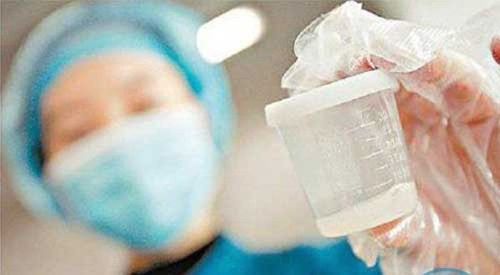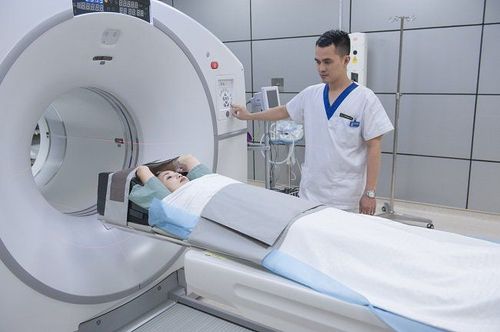This is an automatically translated article.
Cancer and its cure have a big impact on fertility. Therefore, reproductive preservation such as sperm freezing or egg storage plays an important role in the management of cancer patients.
1. Why is it necessary to perform fertility preservation when treating cancer?
Some cancer treatments carry the risk of temporary or permanent harm to a patient's fertility. This risk depends on the type, stage, age of the patient and the treatment of the cancer. Cancer treatments and their effects include:
Surgery: Fertility may be affected by surgery to remove the testicles, uterus or ovaries. Chemotherapy: Effects depend on the type and dose of chemotherapy drugs. The most damage is with the use of alkylating agents and the drug cisplatin. Older women have a higher risk of infertility during cancer chemotherapy. Radiation therapy: Radiation has a greater effect on fertility than chemotherapy, but this depends on the location, size of the radiation field and the dose prescribed. For example, high doses of radiation can destroy some or all of the eggs in a woman's ovaries. Other cancer drugs: Hormone therapy is used to treat certain cancers, such as breast cancer in women. However, the effects from hormones are usually reversible. After stopping treatment, fertility can be restored.
2. When to decide to preserve fertility when treating cancer?
If you've been diagnosed with cancer and need treatment, talk to your doctor about preserving your fertility. Your doctor will help you understand your options, answer questions, and act as an advocate for decisions about preserving fertility during cancer treatment.
Your fertility is at risk of being compromised by just one cancer treatment. Especially for women, fertility preservation is performed during certain phases of the menstrual cycle. Talk to your doctor about whether you need to delay cancer treatment in order to take fertility-preserving steps. If so, how will this affect the disease as well as the treatment of cancer.
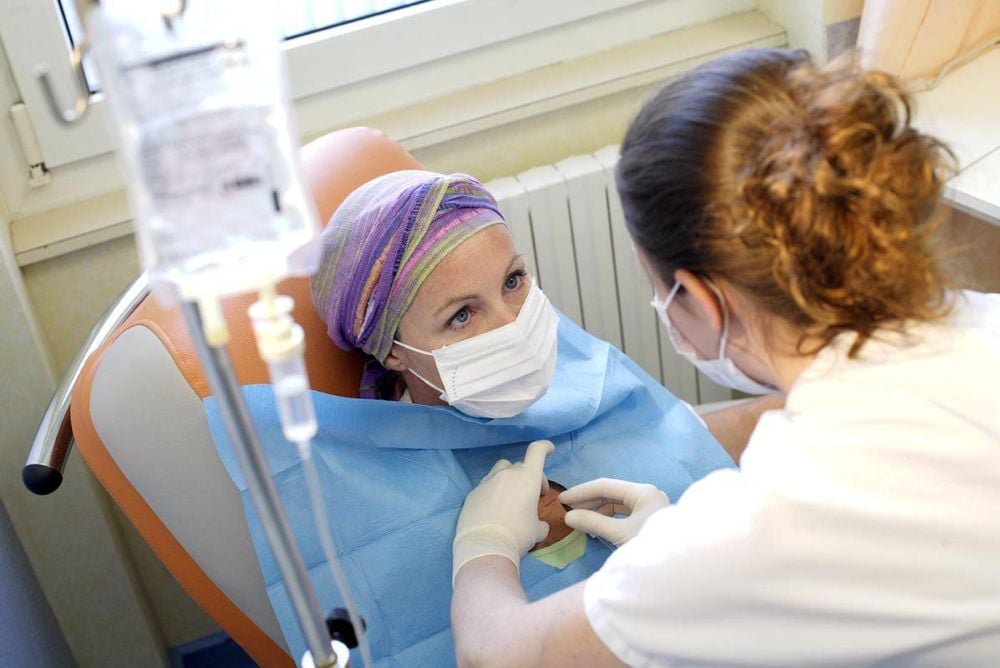
Khi chữa ung thư, bạn cần tham khảo bác sĩ để bảo tồn sinh sản
3. Fertility preservation in women before cancer treatment
Women before cancer treatment have many different options for fertility preservation . These methods include:
Cryopreservation of embryos: This procedure involves storing eggs, fertilizing them, and freezing them so they can be implanted back into the body at a later time. Embryos can perfectly survive freezing and thawing up to 90% of the time. Egg freezing (oocyte cryopreservation): In this procedure, the doctor removes and freezes the patient's unfertilized eggs. Eggs usually do not survive in a frozen state as well as embryos. Radiation shielding: In this method of fertility preservation, small lead shields are placed over the ovaries, to reduce the amount of radiation they receive. Ovarian displacement (oophoropexy): The ovaries are surgically repositioned to avoid radiation as they deliver to the pelvis. However, due to the scattered nature of the radiation, the ovaries are not always protected in this way. After treatment, the patient may have to reposition the ovaries to restore the ability to conceive. Surgical removal of the cervix: In the treatment of early-stage cervical cancer, a large portion of the cone-shaped area of the cervix, including the area infected with malignant cells, is removed (cervical cone) bow ). The rest of the cervix and uterus will be preserved. Alternatively, the surgeon may remove part or all of the cervix.
4. Preserving male fertility before cancer treatment
Men can also take measures to preserve fertility before cancer treatment. Methods of preservation include:
Sperm freezing: Your doctor will freeze and store your sperm at a fertility clinic or sperm bank for later use. Samples are stored refrigerated and can be used for many years. Radiation shielding: In this way, small lead shields are placed over the testicles to limit exposure to radiation.
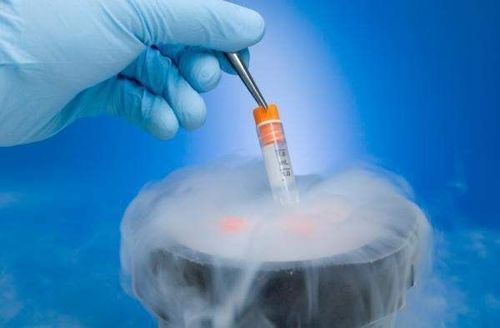
Đông lạnh tinh trùng là một phương pháp bảo tồn sinh sản.
5. What should be done to protect the fertility of children with cancer?
Parents should discuss fertility and fertility preservation with their children during cancer treatment, as soon as they are old enough to understand. Sometimes parent and child consent is needed before surgery is performed.
If the child has begun puberty, appropriate measures include freezing and storing eggs or sperm.
For girls treated for cancer before puberty, the doctor may perform ovarian tissue freezing. In this method, ovarian tissue is surgically removed to be frozen, then thawed and re-implanted.
One method being studied to help preserve fertility in boys treated for cancer before puberty is surgical removal of testicular tissue and freezing them.
6. Does fertility preservation interfere with treatment or increase the risk of cancer recurrence?
There is currently no evidence that fertility-conserving methods can directly affect the success of cancer treatments. However, there is a risk of treatment being affected in cases where patients delay surgery or chemotherapy to perform fertility-conserving procedures.
There is almost no risk of cancer recurrence associated with fertility preservation methods. However, it is uncertain whether re-implanting frozen tissue can reproduce the cancer cells, as this depends on the type and stage of the disease.
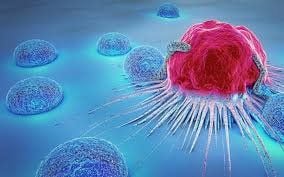
Việc bảo tồn sinh sản ít có khả năng ảnh hưởng đến quá trình chữa ung thư.
7. Will cancer treatment affect the health of the child conceived later?
With the exception of treating cancer in the uterus, current cancer treatments are unlikely to increase the risk of future birth defects or other health problems.
However, in the case of cancer treatment affecting the functioning of the heart or lungs, or if you receive radiation that requires radiation therapy to the pelvic area, talk with your specialist before becoming pregnant to plan plan to prevent possible pregnancy complications.
8. Selection of appropriate reproductive conservation methods
Doctors will look at the type of cancer you have and the treatment plan to help determine the best approach for each individual case.
Cancer diagnosis and treatment regimen often affect the patient's health more or less. However, if you are worried that cancer treatment may affect your fertility, be honest with your doctor for advice and choose a suitable method.
Please dial HOTLINE for more information or register for an appointment HERE. Download MyVinmec app to make appointments faster and to manage your bookings easily.
Reference source: Mayoclinic.org






